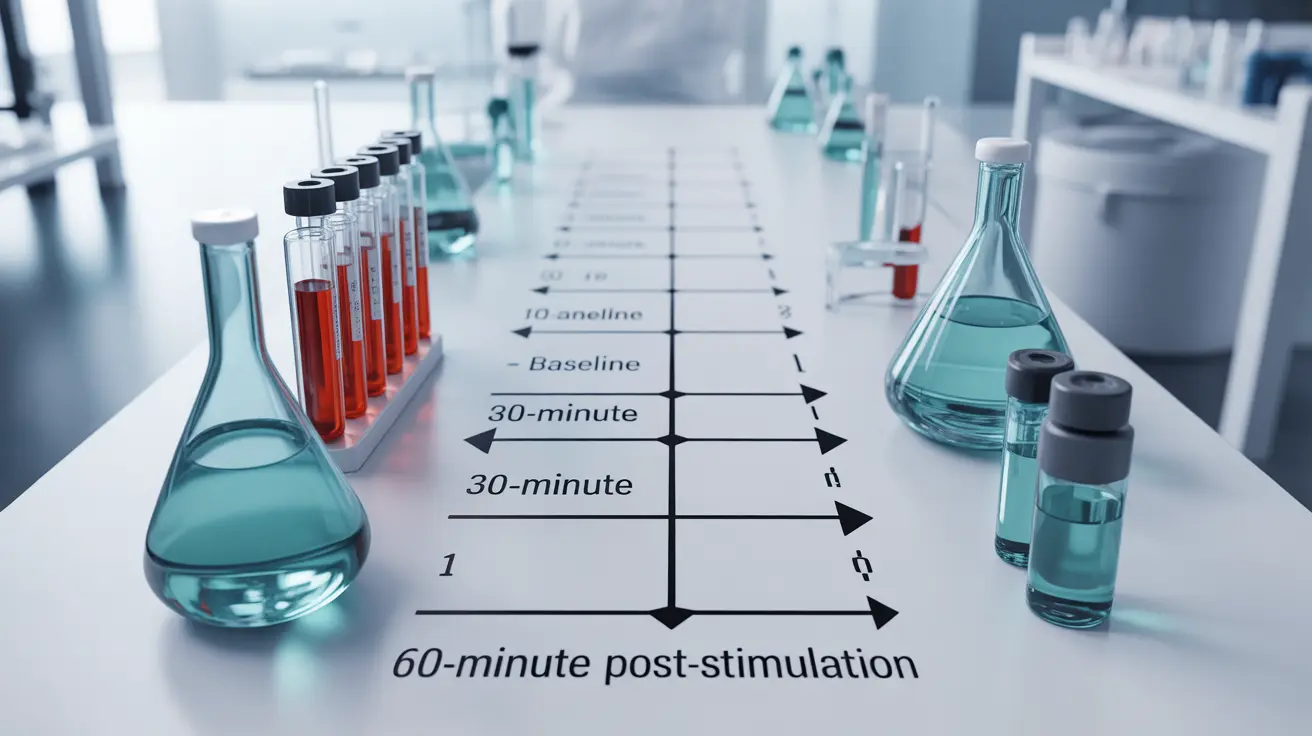The ACTH stimulation test is a crucial diagnostic tool used to evaluate adrenal gland function and diagnose conditions like Addison's disease and other adrenal insufficiencies. Understanding the normal ranges and proper interpretation of test results is essential for healthcare providers to make accurate diagnoses and treatment decisions.
This comprehensive guide will explore the normal cortisol level ranges, factors affecting test interpretation, and important considerations when evaluating ACTH stimulation test results.
Understanding ACTH Stimulation Test Basics
The ACTH stimulation test measures how well your adrenal glands respond to adrenocorticotropic hormone (ACTH). During the test, synthetic ACTH is administered, and blood cortisol levels are measured at specific intervals to evaluate adrenal function.
Normal Cortisol Level Ranges
The interpretation of normal cortisol levels after an ACTH stimulation test depends on several factors, including the specific assay method used and the timing of measurements. Generally, a normal response shows:
- Baseline cortisol measurement
- 30-minute post-stimulation measurement
- 60-minute post-stimulation measurement
Different laboratories may have varying reference ranges based on their specific testing methods and equipment. It's crucial to interpret results using the laboratory-specific reference ranges provided with the test.
Modern Cortisol Assays and Result Interpretation
Newer cortisol assays have improved accuracy and specificity compared to older methods. These advanced testing techniques can affect how results are interpreted and may require different reference ranges than traditional assays.
Impact of Testing Methods
Modern assay methods may show different numerical values compared to older tests, even when measuring the same sample. This variation makes it essential to:
- Use assay-specific reference ranges
- Consider the testing methodology when comparing results
- Maintain consistency in testing methods for follow-up evaluations
Factors Affecting Test Results
Several factors can influence ACTH stimulation test results, including:
- Medications (particularly corticosteroids)
- Stress levels
- Time of day
- Recent illness
- Hormonal medications
- Certain medical conditions
Healthcare providers must consider these factors when interpreting test results to ensure accurate diagnosis and appropriate treatment planning.
Frequently Asked Questions
What is the normal cortisol level range after an ACTH stimulation test?
Normal cortisol levels after an ACTH stimulation test typically show a significant increase from baseline. The specific ranges vary by laboratory and assay method, but generally, cortisol should at least double from baseline and reach a predetermined threshold within 60 minutes of ACTH administration.
How do newer cortisol assays affect the interpretation of ACTH stimulation test results?
Newer cortisol assays offer improved accuracy and specificity, which may result in different numerical values compared to older methods. This necessitates the use of assay-specific reference ranges and careful consideration of the testing methodology when interpreting results.
What does a low cortisol response after an ACTH stimulation test indicate?
A low cortisol response after ACTH stimulation may indicate adrenal insufficiency, which can be primary (Addison's disease) or secondary (pituitary dysfunction). The pattern and degree of response help determine the specific diagnosis and appropriate treatment approach.
Why is it important to use assay-specific normal ranges for ACTH stimulation test results?
Different assay methods can produce varying numerical results for the same sample. Using assay-specific ranges ensures accurate result interpretation and prevents misdiagnosis based on inappropriate reference values.
Can medications or hormones interfere with ACTH stimulation test results?
Yes, several medications and hormones can affect test results, particularly corticosteroids, hormonal medications, and certain prescription drugs. Patients should inform their healthcare provider about all medications they're taking before the test to ensure accurate interpretation of results.




